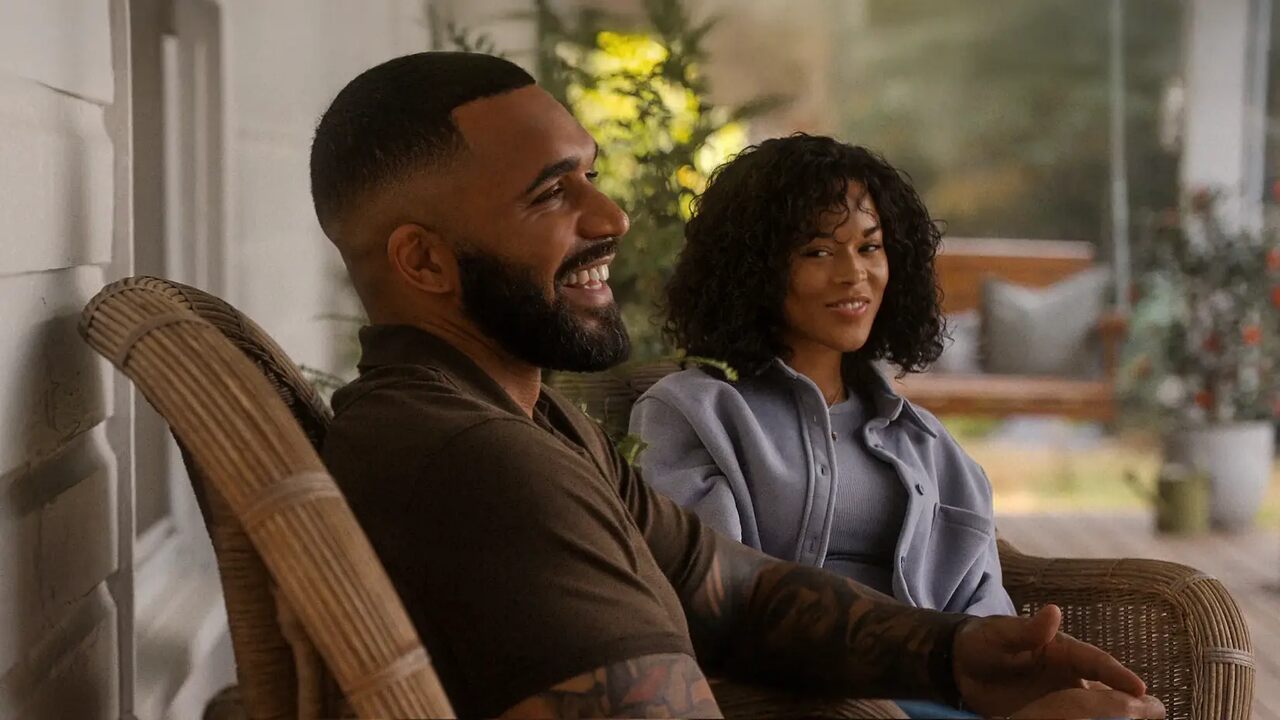
I approached Ruth & Boaz with modest expectations—faith-based retellings can veer too safe or too heavy—but this one pleasantly surprised me more often than not. It isn’t perfect, but it stirs the heart, leans into its emotion, and, most importantly, gives us characters we want to root for.
In its bones, this is a retelling of the biblical tale of Ruth and Boaz (reimagined in modern times), and the film takes that heritage seriously without trying to be a sermon in motion. Ruth Moably (played by Serayah) is introduced as a talented artist with a painful past. After a tragedy in Atlanta, she abandons the glitzy stage life to move to Tennessee and become a caretaker for Naomi (Phylicia Rashad). There, she meets Boaz (Tyler Lepley), a grounded, kind presence whose life intersects Ruth’s in ways both expected and surprising. As Ruth tentatively opens her heart, the film explores themes of trust, legacy, sacrifice, and second chances.
What works well: the casting and chemistry are strong. Serayah gives Ruth a genuine emotional core. She’s not flawless, but she’s believable. Her pain and hope coexist; you see her hesitation before you see her resolve. Tyler Lepley as Boaz is gentle but not bland; there’s a consistent warmth in how he treats Ruth and Naomi. Rashad as Naomi is a highlight: she brings weight to her lines, enough gravitas to remind you that the older generation matters in these stories.
Visually, Ruth & Boaz is clean, warm, and intentional. The Tennessee setting feels lived-in, the lighting tends toward soft tones that suit quiet conversations more than dramatic spectacle. The editing generally lets scenes breathe—moments of silence, glances, lingering tension that pace gives the romance space to build. In a film like this, those pauses matter.
One of its strengths is how it handles Ruth’s inner conflict. She isn’t instantly free of her past. The film acknowledges guilt, regret, and fear. And Boaz isn’t some perfect, untouched man—he too carries burdens. The script gives them both room to mess up and to heal. That balance keeps the narrative from tipping into idealized fairy tale territory.
Still, for all its charm, the film has wobbles. The supporting characters sometimes feel underwritten. There are moments when dialogue leans a bit too on the nose—lines about faith, about purpose, about love—without subtlety. Occasionally the plot contrives coincidences that stretch credibility: characters showing up just when needed, or revelations arriving a little too neatly. In a few scenes, the transitions between emotional states feel abrupt. Ruth might shift from anger to vulnerability in a cut that doesn’t quite land.
Also, while the film’s devotion to its spiritual themes is admirable, it sometimes treads a thin line between mood and message. There are stretches where I felt the film could have trusted the audience more, letting the characters’ actions show faith rather than spelling it out. In a few of those scenes, I yearned for more ambiguity or internal struggle rather than a clear signpost.
Another small gripe: the music. Given Ruth’s musical background, I expected the soundtrack to play a more central role or push boundaries. But while there are musical moments, they rarely surprise. They support rather than challenge. That’s not inherently bad, but it feels like a missed opportunity for deeper texture.
Yet, despite those flaws, the film catches light in unexpected ways. Some scenes lifted me a gentle confrontation, a quiet exchange between Ruth and Naomi, a moment when Boaz reaches out unprompted. Those little sparks are where the movie is at its best. And the ending, while hopeful, doesn’t pretend the path forward will be easy. It leaves you believing in characters—not fairy tales.
If I were advising the filmmakers, I’d ask: push harder on the edges. Give the antagonists more weight. Let some of the spiritual messaging be less direct. Lean more into the tension you don’t immediately resolve. But I also want to commend what they got right: sincerity, emotional stakes, performances that hold steady when the script wobbles.
In the landscape of 2025 streaming offerings, Ruth & Boaz stands as a romantic film that aims to uplift without underestimating its audience. It invites you into the imperfections of turning a new page, of loving not because someone is perfect but because someone is willing to stay. It’s not flawless, but it’s genuine, and sometimes that’s what we need.
If you enjoy romance, faith-inflected stories, or just a character journey rooted in both struggle and hope, Ruth & Boaz is worth your time. Just go in expecting more heart than grand spectacle—and you’ll likely come away moved, if not entirely without reservation.
Final Score- [6.5/10]
Reviewed by - Anjali Sharma
Follow @AnjaliS54769166 on Twitter
Publisher at Midgard Times
Get all latest content delivered to your email a few times a month.
Bringing Pop Culture News from Every Realm, Get All the Latest Movie, TV News, Reviews & Trailers
Got Any questions? Drop an email to [email protected]